Easy Love: An interview with director Tamer Jandali
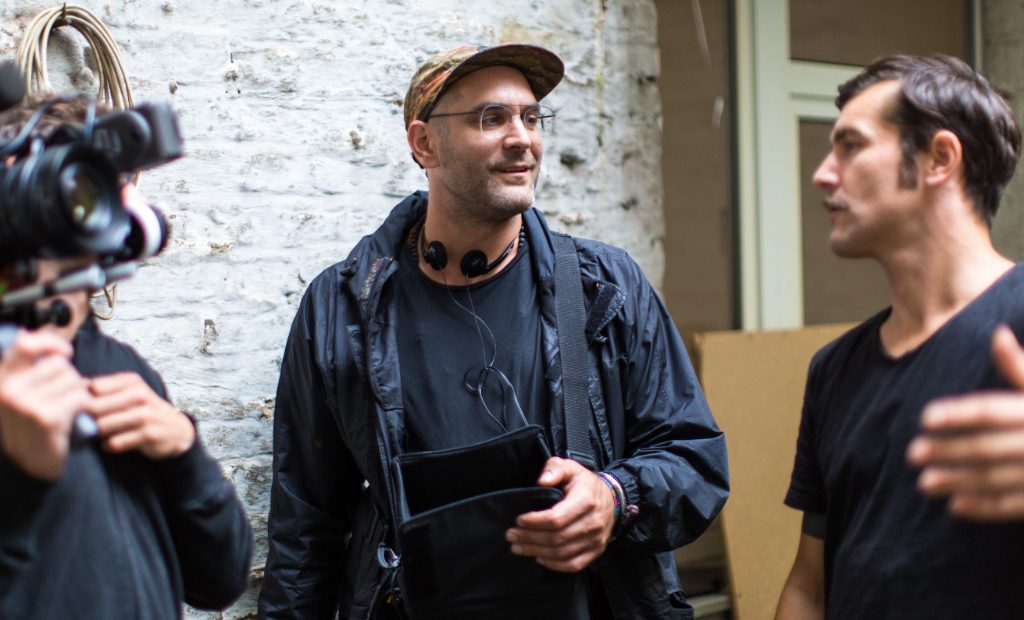
Easy Love is what director Tamer Jandali refers to as an “experiment”: the film, which follows the lives of seven men and women between the ages of 25 and 45 through their romantic and sexual misadventures, is half acted half lived. We sat down to speak to the inexplicably nervous director about Easy Love, its truth, its artifice, issues and its sexuality.
Hello Tamer. I have so many questions about this film, but can you first start by telling me about the its title?
Easy Love? It’s a funny small story. Do you remember this scene where Sören was sitting on the couch and this girl, the half-naked woman was dancing? She played her favourite song, it was called Easy Love, and I loved this scene; he’s looking at his phone, he doesn’t give her one moment of attention, nothing. And just before, they had had sex, it’s so awful, and as soon as I saw it, I thought, “I’ll call this film Easy Love, and all of them don’t want to have easy love and there is no easy love”.
It’s nice to know that it came so organically but I thought when seeing the film that love is far from easy.
I also know it’s not easy, I was really happy and people were saying, “Oh no you need a German title”, and I thought no, why? Easy is such a beautiful word, and easy love too, and I think its better than to have a stupid German… well I don’t know, it’s perfect for this movie. Even If it is a German movie, its worldwide – all the same problems with love.
Tell me about the difference, for you, between documentary and fiction?
I don’t know. There’s not much difference. If you shoot a documentary you also manipulate a lot of things, you just say you don’t do it. I’m am artist so I can do what I want so I don’t need to say it’s all true or it’s all fake, I can use the best of both sides.
Do you think the way in which you’ve shaped this narrative as fictional and documentary says something about both those techniques, and if so what?
It reflects on both of them and creates something new, a new truth, and it was an experiment, I didn’t know what to expect but I thought that I should try it. I’m really happy that it worked out and something interesting happened on the screen.
And were there any concerns that you had, going into the process? Did you think that it could be difficult for the people you were working with, to take a step away, because it’s a sliding scale from reality to artifice?
It was not easy for them, they are really brave people, and I really love them for joining this experiment. For them it really was a psychological trip. Sometimes it was hard for me because with eight different characters with different strengths, sometimes I thought, oh God can I manage this. They need a lot of communication; I had to talk a lot, ask what had happened to them, how they were feeling, do you like it? Do you not? I didn’t want to lose them.
What led the narrative, was it their own lives?
It was their lives and then we thought what could be a step further, what would be a more exciting adventure? And then we pushed them. But, for example, [his voice gets quieter] he [Sönke] was really in love with this girl, Nic and Stella are really together, they really have an open relationship, so I tried to be as authentic as I could. Sometimes I would choose what I would film and what I would cut in the editing process.
Did you feel that this “in betweenness” allowed you access to more, or heightened, truth?
Not more truth, but a special truth, not right or wrong but it’s more like something special happened.
There is a really interesting part in the film where Sophia is speaking to her mum about sex work, how did that come about? Tell me about that scene, and the decision to address this issue?
I was sure I wanted to have this scene. I put it at the end of our shoot, I told them that this day would come and that they should not talk about this before and I said that in a few weeks I want to shoot this scene. I think I can understand the mother and I can understand her daughter, I was happy to film it, I thought it was a great moment.
But that’s also so interesting that they had to wait to have this conversation, this means that the film, and what you want as its director, has a direct impact on their lives with their families and partners. I can imagine it would be quite a difficult dynamic to navigate with the actors that you were working with?
It always had an impact, real life on the movie and the movie on real life. It was really crazy, it was really a balancing act for me as a director and sometimes I thought that I made mistakes or that they hated me. For them I was the therapist, friend and also the a**hole that wanted to shoot the movie. But in the end everything went well. It’s important to love each other, also love to strangers. In the end we tried to be as honest as we could.
Tell me about the role that sexuality plays in the film, and your decision to incorporate these real intimate moments?
I was curious about it, and I thought, a lot of people have so many problems with sex… or I have so many problems with sex, and I wanted to know if they also had some. On the other hand, I think it’s so beautiful if it’s just floating, and you have a good relationship with your own body and your soul, and with your partner’s. If you have good communication, it’s so beautiful when it works. Also, I was thinking, ok, I want an excuse to see how they do it, how they communicate, and how it works.
So you would just let it happen…?
Yes, I didn’t say anything, I just wanted to see how they wanted to show me how they have sex.
And the conversations after sex?
Sometimes I would say, “I would find it interesting if you talk about this and this”.
Did you feel a responsibility as a director to include queer and non-monogamous relationships?
Yes I think I have a problem with people who are not open [generally]. Hopefully the movie can help with empathy and see that these things are normal and change their view, and stop following these stupid rules. It’s crazy, they all have these fancy cars and iphones and still have behaviours that are 200 years old. It’s not good. All of us still have behaviours that aren’t good. I think the movie is also about this, people having behaviours that they do not question, but they’re not good.
Did it change the way you thought about monogamous relationships?
Well, I also want to have an open relationship but yeah… Maybe it’s something people will think about when they watch the movie. But I have nothing against it, I am a little bit romantic, but it could be cool.
How did you choose each of the people and how did you decide to structure the film in this way?
This was a long and interesting process, it was not easy to find people because you need people who are strong and bold, and a little bit narcissistic. I asked everywhere, in train stations, in bars, in waiting rooms, everywhere! If I saw interesting people I would have asked them, if I saw you I would have asked you if I’d seen you somewhere. And then I would explain the experiment, and a lot of people didn’t want to. Especially if I said, ok, if I shoot the movie, I want your real friend, ask your mum, ask your dad. Then they would say “Crazy! No way!”. I didn’t have a lot of choice but from what I did have I got good things.
One thing was also very, very interesting. I told all of them I wanted to shoot sex because I was curious about sex, but it was also manipulative. They were focusing so much on the sex that they forgot to think too much about all of the other parts of the film, all of the important bits in between. Then they were not afraid to do these parts.
And the other thing was that women were much braver than men. Women were really open to doing the movie, and men were so afraid. Especially men who were in relationships. They didn’t want to. Only Nic, he was the only one. And also Sönke – he’s special – but all of them were afraid.
Was there one, or a few narratives, that you found more difficult to film?
I think Sophia and Sönke were the easiest, because they were alone, not in couples. Especially the couple that came together in the film [Lenny and her girlfriend], they felt that it was a danger to their love, which was why they were more afraid about the movie. They didn’t have as much time to shoot, that’s why they were less prominent, they didn’t want to fight after or during shooting, they wanted to protect their love. They fell in love, decided to do the movie but then they suddenly realised that the movie was too much for them. There was the same problem with Nic and Stella because I was there and I felt like the third wheel.
Well I really enjoyed the film…
I think it’s like a small diamond, and it works its way in after a few days or weeks. That’s why I’m a little bit proud of it. I think art should be like this. It should work its way into the soul and into the brain.
Fenja Akinde-Hummel
Photo: Lichtblick
Easy Love does not have a UK release date yet. Read our review here.
Read more reviews from our Berlin Film Festival 2019 coverage here.
For further information about the event visit the Berlin Film Festival website here.











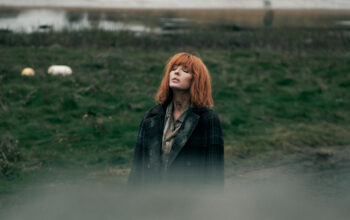


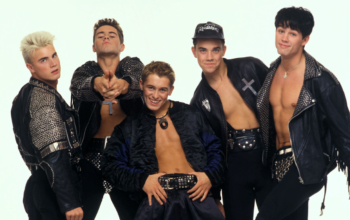
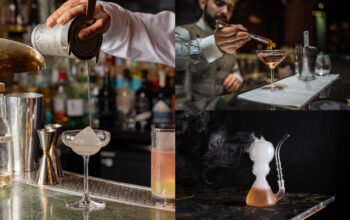

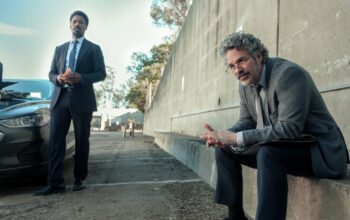

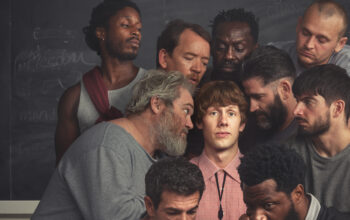
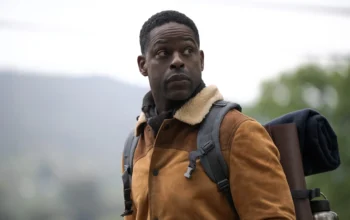
Facebook
Twitter
Instagram
YouTube
RSS